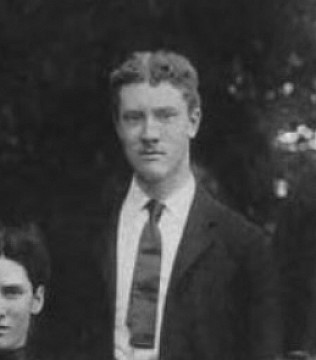Maj. Robert Griswold Emmet (1871-1955)
D.S.O., of Moreton Paddox, Warwickshire
He was born at Charlottesville in Albemarle County, Virginia, and was educated at Harvard. His great-grandfather, Thomas Emmet, was the brother of the famous Irish rebel Robert Emmet who was sentenced to hang for his role in the 1798 Rebellion. He was a nephew of John Griswold, President of the Illinois Central Railroad and no doubt inherited part of his $25 million fortune. In 1896, at Charlottesville, Virginia, he married Louise Garland whose father was Vice-President of the First National Bank of New York and the owner of one of the largest collections of Chinese Porcelain ever accrued in the States. In 1904, the newly-weds leased Warwick Priory while nearby they built Moreton Paddox (see images), an Elizabethan-style house on 500-acres next to Moreton Hall, the equally impressive mansion built by Mrs Emmet's brother, Charles.
Before World War I, he divided his time between London and Warwickshire where he was a prominent and popular member of the local hunt. Major Thomas Bouch of Ashorne recalled, "the Emmets were very much liked by all their neighbours. They entertained pleasantly, without ostentation". On the outbreak of war, the family held a meeting as whether to return to the States or support the British. They chose the latter and Robert renounced his American citizenship to become British. They gave Moreton Paddox to the government, converting it at their own cost into a 50-bed convalescent hospital equipped with staff. Robert also personally raised and equipped a troop of 55-yeomanry.
Not merely content to throw his house and money towards the war effort, in September, 1914, despite his age and careless of what his ancestors might have said, Robert enlisted with the Warwickshire Yeomanry and was commissioned as a Major. He had already fought in the American-Spanish War and was now posted to Egypt but suffered a bad bout of heat stroke and was invalided back to England. In 1916, he transferred to the Royal Field Artillery and went to France with the 168th Brigade of the British Expeditionary Force. He served throughout the war in many major battles, notably the Somme offensive. He was mentioned in despatches and received the D.S.O. in 1917. After victory was declared, he served with the Army of Occupation in Germany, returning home in 1919.
Before World War I, he divided his time between London and Warwickshire where he was a prominent and popular member of the local hunt. Major Thomas Bouch of Ashorne recalled, "the Emmets were very much liked by all their neighbours. They entertained pleasantly, without ostentation". On the outbreak of war, the family held a meeting as whether to return to the States or support the British. They chose the latter and Robert renounced his American citizenship to become British. They gave Moreton Paddox to the government, converting it at their own cost into a 50-bed convalescent hospital equipped with staff. Robert also personally raised and equipped a troop of 55-yeomanry.
Not merely content to throw his house and money towards the war effort, in September, 1914, despite his age and careless of what his ancestors might have said, Robert enlisted with the Warwickshire Yeomanry and was commissioned as a Major. He had already fought in the American-Spanish War and was now posted to Egypt but suffered a bad bout of heat stroke and was invalided back to England. In 1916, he transferred to the Royal Field Artillery and went to France with the 168th Brigade of the British Expeditionary Force. He served throughout the war in many major battles, notably the Somme offensive. He was mentioned in despatches and received the D.S.O. in 1917. After victory was declared, he served with the Army of Occupation in Germany, returning home in 1919.








